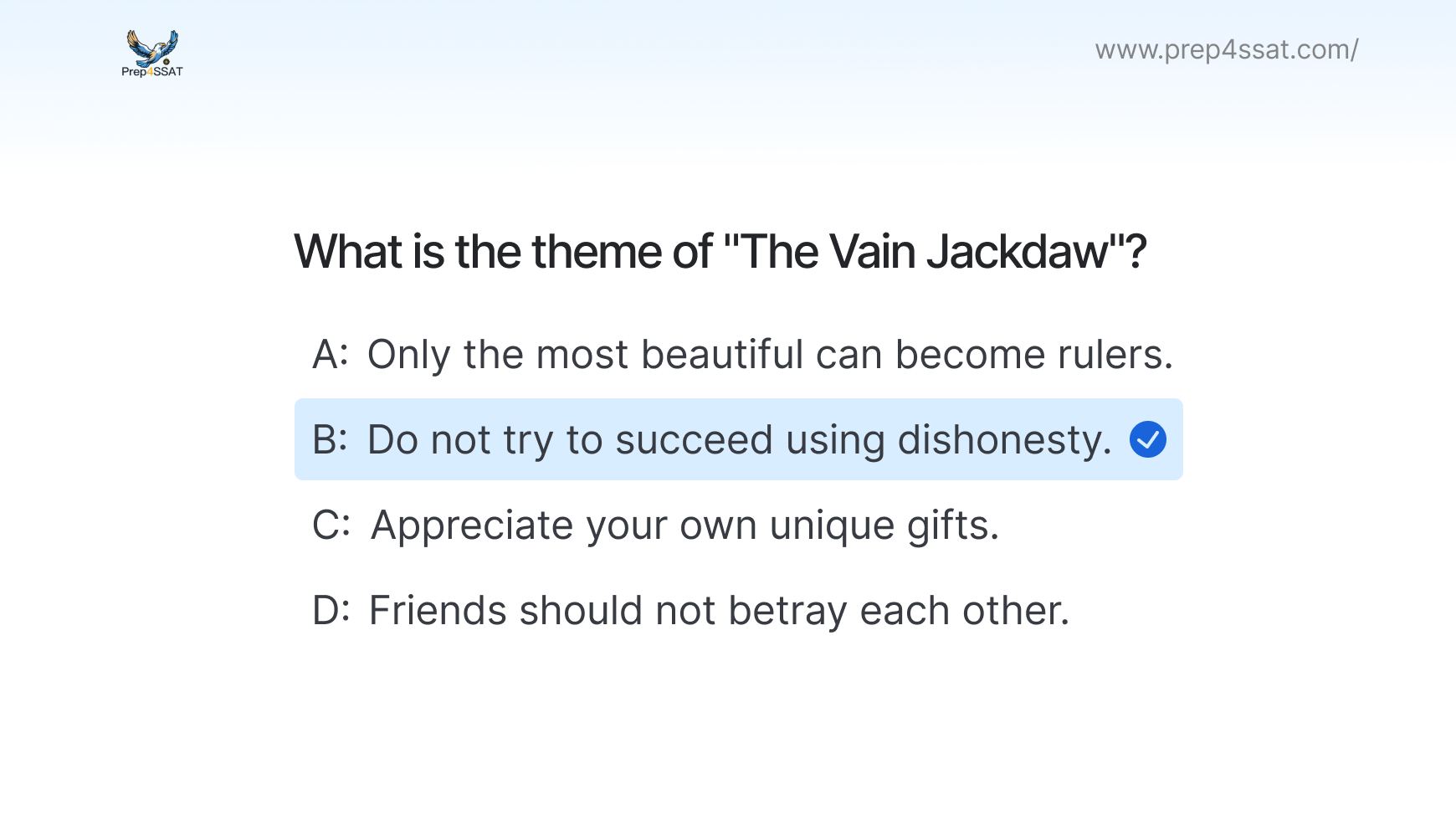
What is the theme of "The Vain Jackdaw"?
Question
What is the theme of "The Vain Jackdaw"?
A. Only the most beautiful can become rulers.
B. Do not try to succeed using dishonesty.
C. Appreciate your own unique gifts.
D. Friends should not betray each other. ****
Answer:
B. Do not try to succeed using dishonesty.
Brief Explanations:
"The Vain Jackdaw" teaches the lesson that deceit and dishonesty do not lead to true success. The jackdaw attempts to fake its way into gaining status by wearing the feathers of other birds, but this ultimately fails. The story highlights the folly of relying on dishonesty for personal advancement.
Part B
Which evidence best supports the answer in Part A?
a. "Jupiter announced that he intended to appoint a king over the birds, and named a day…when he would select the most beautiful of them all to be their ruler."**
b. "…he was about to make the Jackdaw king, when all the rest set upon the king-elect, stripped him of his borrowed plumes, and exposed him for the Jackdaw that he was."**
c. "Wishing to look their best on the occasion they repaired to the banks of a stream, where they busied themselves in washing and preening their feathers."**
d. "The Jackdaw…picked up the most gaudy of the feathers they had dropped, and fastened them about his own body, with the result that he looked gayer than any of them."**
ANSWER:
b. "…he was about to make the Jackdaw king, when all the rest set upon the king-elect, stripped him of his borrowed plumes, and exposed him for the Jackdaw that he was."
Brief Explanations:
The theme of the fable highlights the consequences of dishonesty: the Jackdaw tries to use deception to gain power and ends up being exposed. The evidence underscores this lesson by showing how the Jackdaw is unmasked and loses everything.
Extended Knowledge:
The Vain Jackdaw in Aesop's Fables
This fable teaches the moral that dishonesty and pretension often lead to failure. It emphasizes self-acceptance and warns against pretending to be someone you are not.
Themes in Aesop’s Fables
Common themes in Aesop's fables include honesty, humility, and the consequences of one's actions. Each story typically offers a moral lesson that applies to everyday life.
Historical Context of Aesop’s Fables
Aesop’s fables originated in ancient Greece and were used to teach morals through simple, animal-based stories. These fables have been passed down for centuries and remain relevant today.